Why is Europe drawn to Russia if Russia is Eurasia?
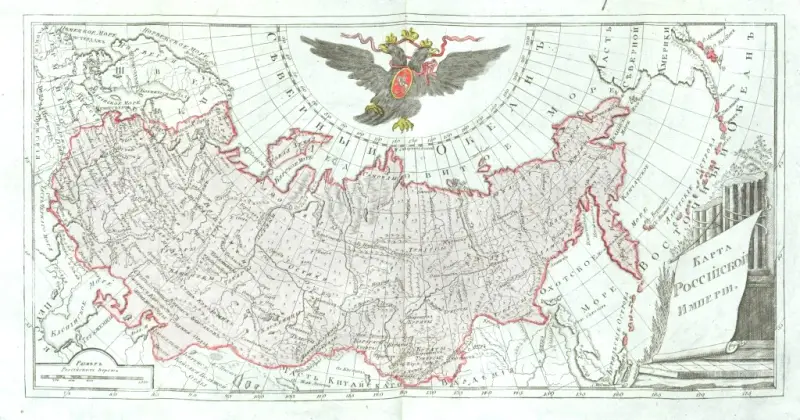
Over five centuries of confrontation, neither the reasons for hatred nor the methods of fighting the power of Russia have changed. The thirst to “take”, and preferably without giving anything in return, only became stronger. Peter the Great responded to this with a breakthrough to the Baltic and the first powerful shift to another - the southern sea.
Having failed to defeat Russia on the battlefield, Europe took a different path: it looked for internal contradictions and cleverly directed discontent to overthrow monarchs it disliked for one reason or another. It is no coincidence that the entire 18th century passed under the sign of coups d'etat. The time has come for the secret councils and the guard.
The era of revolutions
In the early morning of January 28, 1725, Emperor Peter I died in the Winter Palace. Shortly before his death, he issued a Decree on Succession to the Throne, according to which each emperor could independently determine the most worthy and appoint his successor. And so a dangerous bomb was planted under the Russian throne, which essentially random characters ended up on.
Moreover, almost every coup was not only a purely internal affair, but also the result of foreign influence. So, there were a lot of foreigners around Catherine I, not Russian, by the way. Later, the French envoy to Russia, Jacques Chetardy, persuaded Princess Elizabeth to seize power... The overthrow of Paul was not without an English hand.
June 1762, and the accession of Catherine II can be considered a classic scenario for the usurpation of power. The wife of the legitimate emperor, a foreigner by birth, Catherine overthrew her own husband, Peter III. And instead of a quiet departure to Holstein, Peter’s death was arranged in Ropsha. Under unclear circumstances.
Who was behind the coup? Historians almost unanimously claim that Western “help” could not have happened here either. Catherine was denied money from France; she had nothing to feast on, but England lent the Empress a fair amount.
But the British’s hope for an obedient empress did not work, although Catherine did not resume the war with Frederick II, who was also subsidized by London. It is with Catherine that the growth of the state’s territories and the rise in prosperity, successes in the field of science, education and culture are associated, and at the same time, the Pugachevism, which was terrible for the authorities.
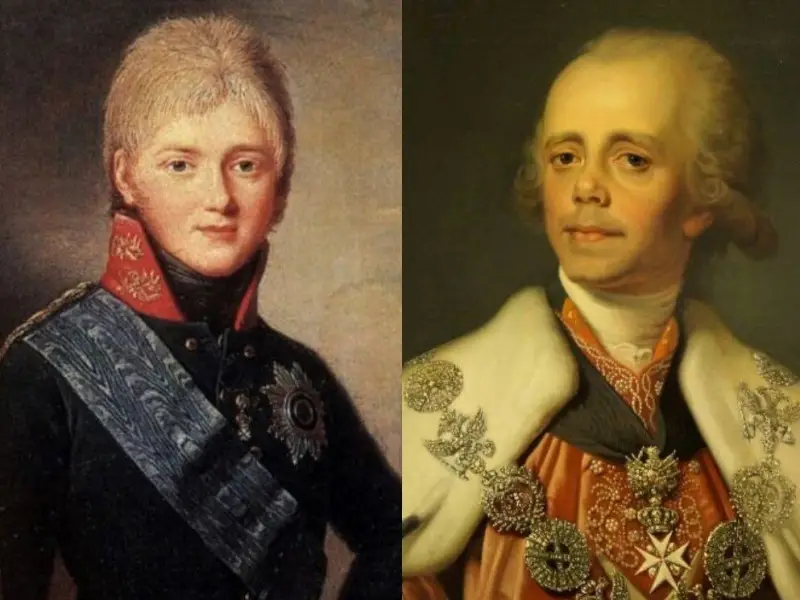
The latest conspiracy in the era of palace coups in the 18th century united the efforts of foreign agents of influence and courtiers dissatisfied with the regime. Catherine's son Paul I was killed by conspirators from the entourage of Alexander, who became the First. And the helmsmen were in London.
The interests of Great Britain were then threatened by the alliance with France that was emerging under Paul. Why Paul decided to enter into an alliance with Napoleon is also clear. And the main thing is not that Britain captured Malta, where the Russian emperor became the grandmaster of the Order of Malta. More importantly, London was frightened by Russian successes on land and at sea - in Italy and in the Mediterranean archipelagos.
The threat to Egypt is too serious, and the French have not completely left there yet. But Pavel also set his sights on India. What if Ataman Platov’s Cossacks really got there?
The classics - Rambaud, Hoffmann and Lavisse - wrote a lot about the joint plans of Bonaparte and Paul. The emperors had the opportunity to create a land route to India, which could enrich the Russian empire and the then French republic. But this is too much - this is the reason to eliminate Paul.
The official cause of death of the emperor was “apoplexy,” but people added with a grin “... a snuff box to the temple.” This time, British diplomacy could be pleased - Alexander I, who replaced Paul, soon joined the anti-French coalition. This ultimately led to Napoleon's army invading Russia.
But England did not calm down.
"The Englishwoman crap"
No one was named as the author of this famous phrase, including Suvorov and Gogol, who, however, was cheated by a Frenchman. It is believed that the not-so-famous poet Nikolai Ventzel was officially the first to speak this way in 1902 about the already deceased English Queen Victoria. However, it is clear that it was not so much Russia that spoiled Russia, but England as a whole.
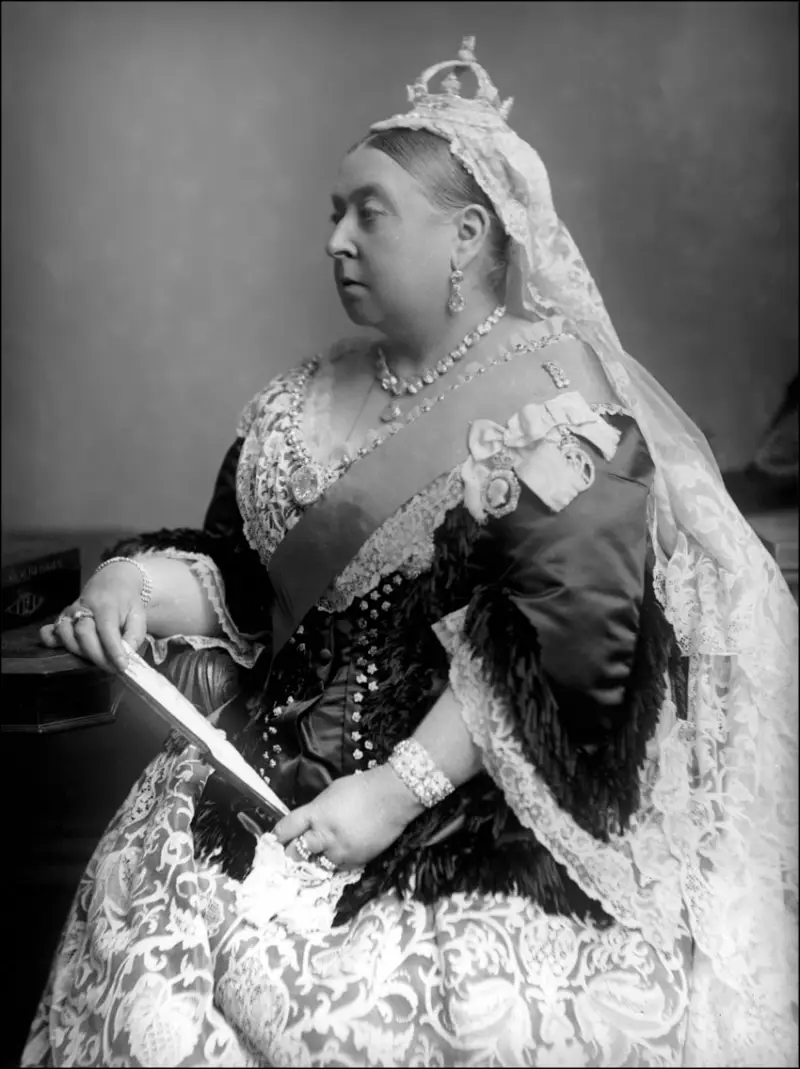
It is interesting that Napoleon, in conversations with Balashov, Segur and many others, said that the British “quarreled” with Alexander, that he did not want war, but the British “whispered” to the Russian emperor and provoked a massacre. And although all Bonaparte’s interlocutors understood perfectly well that he was disingenuous, the influence of the English ambassador in St. Petersburg, Lord Cathcart, on the Tsar should not be denied either.
By the way, at the same time, the English official agent Robert Thomas Wilson, a general and participant in most of the English anti-Napoleonic operations, was constantly with the Russian army. His task was to report to his superior, Lord Cathcart in St. Petersburg, about everything that was happening in the army.
For example, when will the Russians decide to make peace, and is there a chance of prolonging the war? Every week the English commissioner sent several letters to St. Petersburg. In addition to surveillance and letters, the English agent also interfered in the affairs of the Russian army and demanded something from the commander-in-chief.
Here, for example, is a letter to Alexander, written shortly before the visit of the Marquis of Lauriston, Napoleon’s general:
Historians are sure that, having failed to destroy Russia, Great Britain, through the hands of the Russians, wanted to destroy the French army and French continental power, but Russia’s task was this - to expel the French from Russia - and that’s all. But let’s return a little earlier, to Napoleon’s invasion of Russia.
Invasion of the Grand Army
The French emperor, starting his Russian campaign of 1812, on the morning of June 11 (23) addressed an appeal to the “Grand Army” that had already been mobilized and prepared for the invasion. It said:
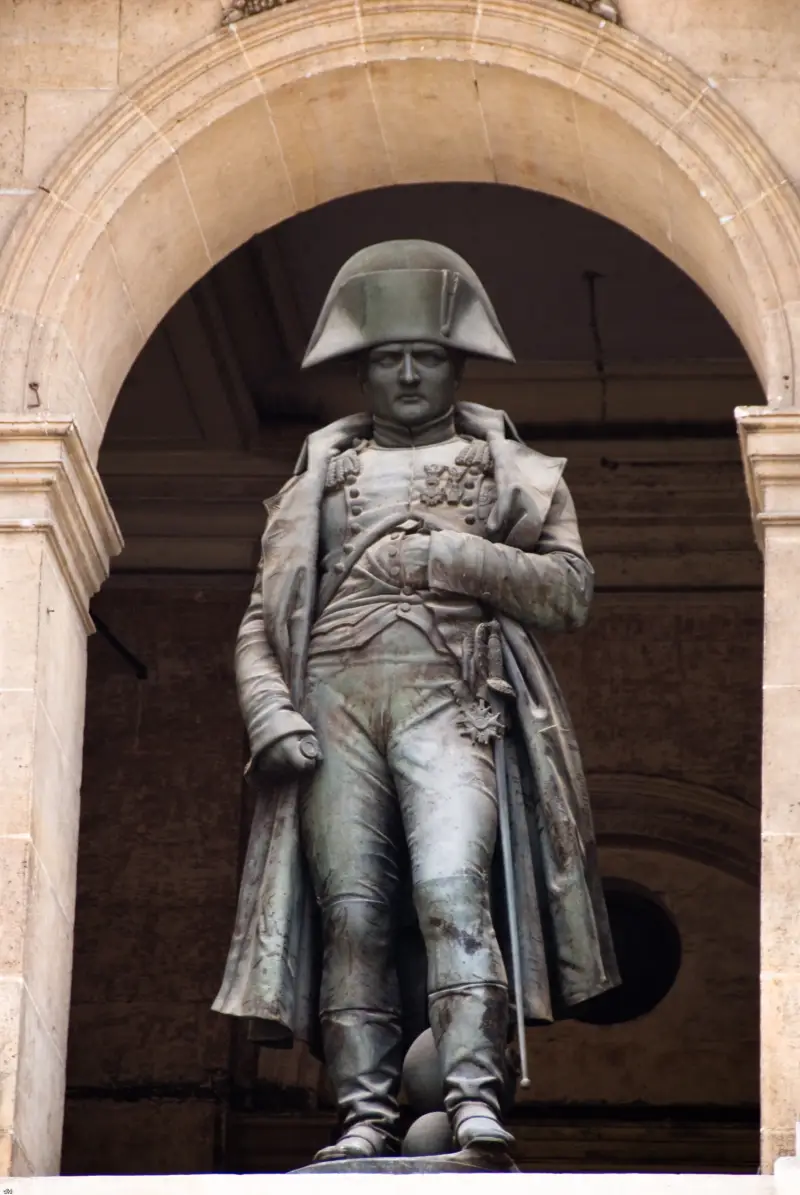
Demonstrative words, aren't they? Napoleon invaded Russia with an army of 400 at the height of his power. But of these soldiers, only half were French, the rest were Poles, Germans from the German states of the Rhineland, Germans from Prussia, Italians, Spaniards, Croats. To this number should be added the Austrian corps of 30 thousand.
It’s not for nothing that this war is called “Invasion of twelve languages" Result of the War of 1812: The Russian Empire received vast territories, including Finland and the Kingdom of Poland; Russia became one of the organizers of the Holy Alliance - to protect monarchies.
Interestingly, in 2012, a monument was erected in Turku (Finland) in honor of the meeting between Alexander I and the King of Sweden, during which they agreed on the annexation of Finland to Russia. After the start of the SVO, they decided to demolish it. And what? Fighting monuments is cool!
The next invasion of the “twelve tongues” occurred only in the next century, as described in the first essay in this series (The attraction of a country with an unpredictable history).
The attraction of Crimea
And by the middle of the 19th century. Great Britain and France brought Turkey under their influence. At that time, Russia pursued an active policy aimed at liberating the Orthodox Slavic peoples from Turkish rule. The task of opening a way out of the Black Sea was facing our country even then.
In order to weaken a powerful competitor, Paris and London pushed Turkey into a conflict with Russia, promising it military support. Not without the participation of the French government, in 1850 a dispute arose between the Catholic and Orthodox clergy over the ownership of Christian shrines in the Holy Land, which was in the possession of Turkey.
The provocation that led to the start of the war was the transfer of the keys to the Bethlehem Church of the Nativity into the hands of the Catholic clergy. This act was perceived in Russia as an insult to the Russian Emperor. But even before this, the English ambassador Stratford de Redcliffe arrived in Istanbul and opposed the Russian diplomat Menshikov. Radcliffe secretly conspired with the French ambassador Edmond de Lacour to wage a common anti-Russian struggle.
Menshikov presented an ultimatum: either recognize not only religious, but also secular privileges for the Orthodox Church, or negotiations stop. The Sultan rejected the ultimatum, so on June 21, 1853, the Russian army crossed the border of Turkey, and on July 4, 1853 entered the Danube principalities. And on October 4, 1853, the Sultan declared war on Russia.
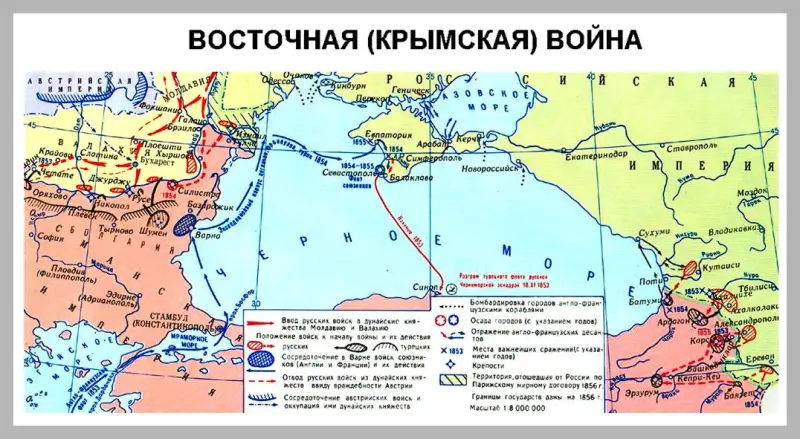
The Crimean War, which in the West is not accidentally called the Eastern War, should already be considered as the first intercivilizational war, between Western (Catholic) and Slavic (Orthodox) civilizations. On the side of Muslim Turkey against Russia came the Christian, but each in its own way, England and France.
Already on September 17, the united Anglo-French fleet passed through the Dardanelles to the Sea of Marmara, and at the beginning of 1854, England and France declared war on Russia. Historians point out that the main issue in this war was not the division of Ottoman possessions, but hegemony in Europe.
Thus, one of the reasons for the war was the coup d'etat in France in December 1851, when Louis Napoleon proclaimed himself Emperor Napoleon III, violating not only the laws of the French state, but also an international treaty that prohibited representatives of Napoleon's family from occupying the French throne.
European states did not react to this violation, unlike Russia, where Nicholas I, observing international agreement, refused to recognize the impostor as emperor. In short, as they would say now, Nikolai simply did not understand that “this is different”...
I would especially like to say that until 1853 it was Russian diplomacy that was in the lead in Europe. Let us recall that the English minister Clarendon said in a speech in parliament that in those days, by general opinion, Russia possessed not only “overwhelming military force", but also diplomacy, characterized by "incomparable dexterity" And in 1851, Baron Stockmar, a friend of Queen Victoria of England, wrote:
In this war, European unity against Russia became obvious. Therefore, the danger for Russia came from any country of European civilization. This fact did not make it possible to use more military forces in the Crimean campaign, since they were deployed along all the borders of the empire.
It is believed that if the Caucasian Army had been sent to Sevastopol, the outcome of the war could have been different. But at this time military operations were also taking place in the Caucasus. At the same time, the Allies tried, although unsuccessfully, to organize a blockade of St. Petersburg. There was also a war in the Pacific.
The main reason for the Allied attack on Kamchatka was the struggle of the great powers for supremacy at sea and, in particular, in the Pacific Ocean. The Anglo-French made two attempts to storm Kamchatka Petropavlovsk, and both ended in complete failure.
Barbara Jelavich, an American historian, wrote that after the Napoleonic wars, Russia was the only country in Europe that had no claims against any of its neighbors. It was not Russia, but the leading Western European countries, primarily England, that needed the destruction of the existing system of international relations, for which they put forward a military program directed against Russia.
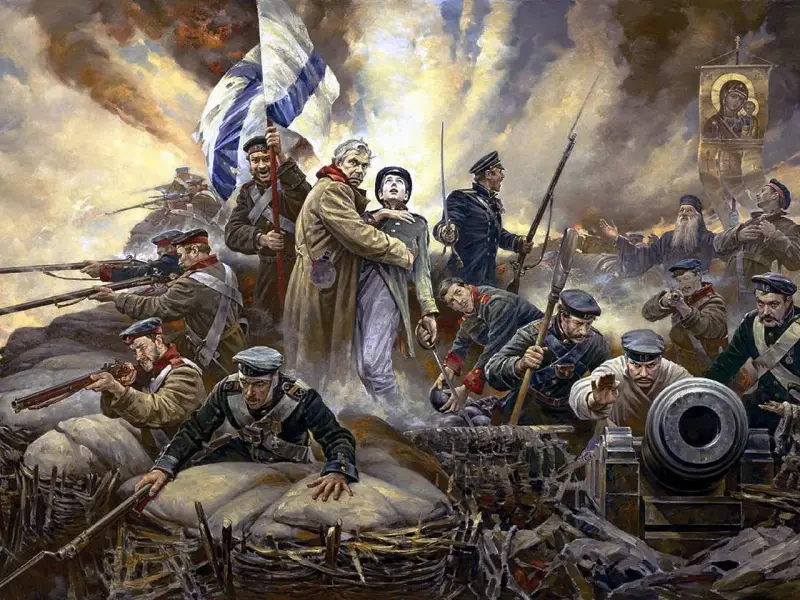
Experience of defeat
It is believed that Russia lost the Crimean War for several reasons. So, everyone remembers Lenin’s famous statement:
Indeed, serfdom remained in Russia, and this limited the development of industry. That is why the Russian army was not armed according to the latest military standards of that time.
But the main reason was still political - Western states united against Russia precisely in a civilizational confrontation. Europe remembered Russia's victory after Napoleon's defeat in 1812-1814. and was afraid to repeat my mistake. That is why she assembled such a strong army, providing it with all the weapons available at that time. In addition, at this time Russia was fighting against five states on three fronts! The fighting of the Crimean War took place in the Crimea, the Caucasus and the Pacific Ocean.
At this time, domestic thinkers write a lot about the rivalry of civilizations. Thus, Khomyakov saw the decisive role of Russia in the civilizational confrontation, for the preservation of the Orthodox religion and the church, because he believed that the “third Rome” is an exponent of the true (Orthodox, and not distorted - Catholic) Christian teaching, and this lies historical Russia's mission in world history, for this it fights and wins wars.
The myth of the Crimean War as a war in which Russia was defeated because it was a backward state was refuted in the public consciousness. This is not so, firstly, because from the time of Peter I to Nicholas II, Russia fought ten wars with the Turks, and the Crimean War was the eighth in a row. Could a backward state wage so many wars with almost regular success? Of course not!
Russian orientalist V.I. Sheremet believes that the Eastern or Crimean War was started by the Vatican, deciding to fight against the rapid strengthening of the Eastern Christian world. In his conclusions, he relies on unique Arabic, Turkish and Kurdish documents stored in Russian archives.
The most famous sanctions of that time include the ban on Russia to have a fleet in the Black Sea, introduced by the terms of the Treaty of Paris (1856) at the end of the Crimean War. As a result, Russia found itself locked in the Black Sea, and its trade with the outside world through the Black Sea straits of the Bosporus and Dardanelles was under the control not so much of Turkey as of Great Britain.
It was then that the words were spoken for the first time:
In 1860, Russia withdrew from the Treaty of Paris imposed on it and subsequently became one of the most dynamically developing states.
However, Europe did not calm down. All-European anti-Russian propaganda began, portraying Russia as a potential aggressor, ready at any moment to devour “civilized” Europe. Doesn't remind you of anything?
Information